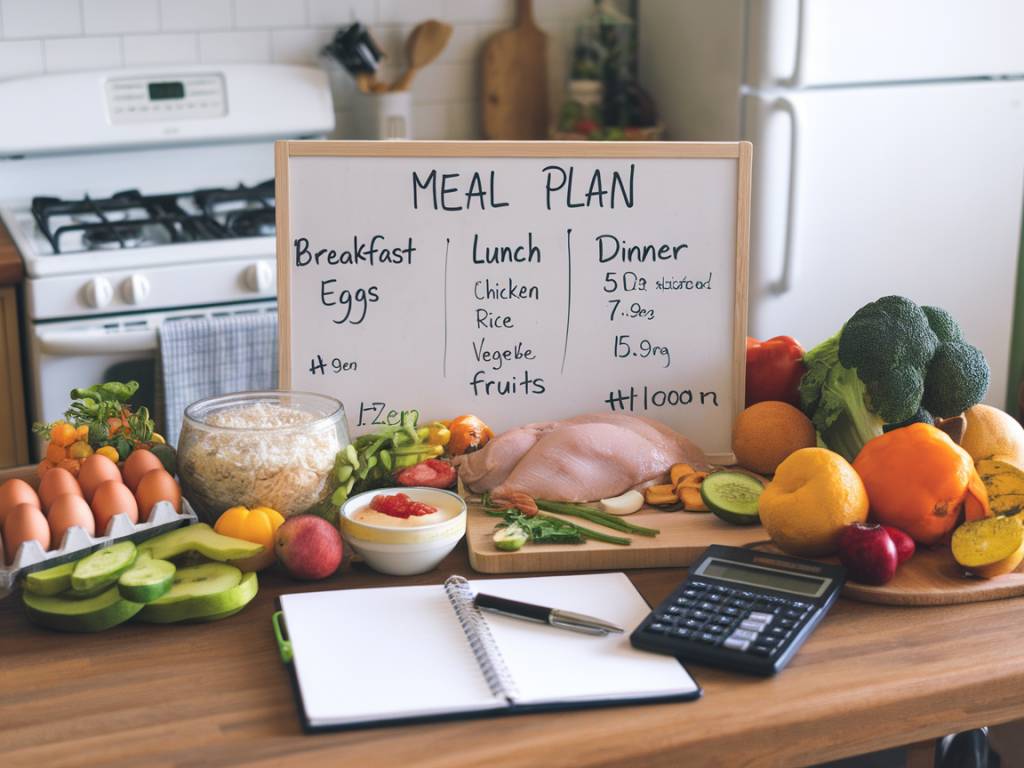
How to meal plan to save time and money
Are you tired of opening your fridge only to be greeted by half-empty shelves and random ingredients that don’t seem to go together? Or perhaps, you’re weary of those surprise expenses that seem to creep up on every trip to the store? Meal planning could be your new best friend. Here, we’ll explore how this simple yet effective strategy can save you both time and money—all while keeping that fridge full and organized.
Understanding the Basics of Meal Planning
First things first—what is meal planning? It’s simple: meal planning involves creating a strategy for your meals ahead of time. While it may sound like an extra task to add to your plate, its benefits far outweigh the initial effort involved.
Imagine walking into your kitchen knowing exactly what’s for dinner and having all the ingredients ready to go. Bliss! Not to mention, planning can help reduce food waste and those last-minute takeout orders. But how do you get started, and more importantly, how do you do it effectively? Let’s dive in.
How to Start Meal Planning Like a Pro
Starting with meal planning doesn’t require a degree in culinary arts or an assortment of expensive gadgets. Here’s a step-by-step guide to ease you into the process:
- Determine Your Goals: Are you looking to eat healthier, reduce your grocery bill, or simply save time during the week? Knowing your primary aim will guide your planning strategy.
- Create a Master Recipe List: Compile a list of your favorite recipes. Include family favorites and simple meals that are quick to prepare. This will be your go-to source for building weekly menus.
- Pick a Day for Planning: Choose one day a week to plan your meals. Many find Sundays or Mondays ideal because they set the tone for the week.
- Check Your Kitchen Inventory: Before heading to the store, take stock of what you already have. This helps avoid double purchases and keeps your pantry clutter-free.
- Create a Shopping List: With your meal plan in hand, jot down only what you need for the week. Sticking to this list is crucial for saving money.
Time-Saving Techniques
Once your meal plan is set, there are additional techniques to streamline your process further:
- Batch Cooking: Prepare large quantities of meals that can be refrigerated or frozen for future use. This is excellent for soups, stews, and casseroles.
- Prep Ingredients in Advance: Chop vegetables and marinate proteins ahead of time. It’s amazing how much this can speed up meal prep during the week.
- Use a Slow Cooker or Instant Pot: These gadgets can be lifesavers for busy households, allowing you to cook while focusing on other tasks.
Cost-Effective Meal Planning Tips
Meal planning is more than just a time-saver; it’s also a powerful tool for keeping your finances in check. Here’s how to maximize your savings:
- Buy in Bulk: Purchase staple items like grains, nuts, and spices in larger quantities. They often come at reduced prices per unit.
- Opt for Seasonal Produce: Not only does this support local farmers, but in-season fruits and vegetables tend to be more affordable and tastier.
- Embrace Meatless Meals: Incorporating a few plant-based meals each week can significantly lower costs, as meat is often the most expensive component of a dish.
The Hidden Benefits of Meal Planning
While the tangible benefits of meal planning involve time and cost savings, the practice offers deeper, often overlooked advantages:
- Healthier Eating Habits: Planning allows you to incorporate a balanced diet rich in nutrients, as you have full control over your menu.
- Reduced Stress: Knowing what’s for dinner and having everything on hand alleviates the daily pressure of meal decision-making.
- Environmental Impact: By reducing food waste and making mindful food choices, you’re contributing to a more sustainable planet.
Meal planning isn’t just a trend; it’s a lifestyle choice that offers extensive benefits for you and your family. Dive in with an open mind, and you might just find that it changes the way you navigate your day-to-day life.
So, ready to grab that notepad and start planning your culinary routines? Remember, the key is to start small and find a rhythm that works for you. Who knows—you might even find joy in the process!






